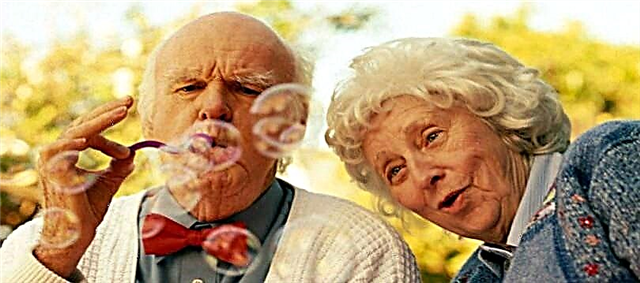
Children can be very jealous. Everyone knows about this, and in relation to adults who are overly jealous, they often use the comparison “like children”. The mechanisms of development of childhood jealousy are very complex, not like adults. And you cannot underestimate childhood jealousy, you cannot ignore it, because it can cause deep mental trauma, which will manifest later when the child becomes an adult.
Why and how children are jealous and what parents should do in a given situation, we will tell in this article.

Mechanisms
Childhood jealousy is always caused by the fear of being unloved, unprotected. In childhood, trees seem large, and troubles seem insurmountable, the world for the little one begins with mom and is mainly limited to her. Until a certain age, mother is the main guarantor of safety, a source of love and tenderness, which children need no less than food and water, sleep and play. The fear of losing at least a small fraction of this love of the main person for the baby generates jealousy.
Do not think that babies perceive a loved one as property, this is more inherent in adult jealousy. The mechanism for the development of negative reactions in children is usually different: at first, there is bewilderment as to why and where someone came from, to whom the mother pays attention. The inability, due to age and lack of life experience, to explain everything to oneself and give answers to tormenting questions, is transformed into a psychological rejection of the situation. If the situation does not disappear from this, it begins protest, which can be both open and take the form of a difficult internal conflict.
The baby cannot quickly adapt to new conditions of existence. But he also cannot exist in them. Because of this, his conflict begins not with himself, but with those around him. His behavior is changing, he is trying in every possible way to return the old order of things, familiar and familiar, trying to attract the attention of his mother.
Childhood jealousy is a cry for help that cannot be ignored, since it is fraught with serious consequences for the baby's psyche.

Children start to get jealous very early. The first such reactions can be seen already in children aged 10-11 months, it is at this age that the child begins to protest if the mother suddenly begins to approach other children or dad at the moment when he needs his mother's presence. After a year and a half, children become big owners, this can be seen in their attitude towards their toys and the prospects for sharing them with another child.
After the age of two, children acquire the ability to slightly restrain their emotions and manifestations of jealousy, but from that moment jealousy becomes especially dangerous, as the baby transfers his experiences deep into his soul. The biggest jealous people in the world of children are children from 2 to 5 years old., it is at this age that the need to be loved and any encroachment on his personal source of love are perceived extremely painfully.
Children of any age are jealous most destructive of all can be teen jealousy, after all, a large child is already able to give answers to some questions, but these answers clearly do not suit him.
The more accumulated life experience a child has, the stronger the fear of losing the favor of an important person will be, and the more sophisticated the options for revenge on the "offender" and "invader" can be.

Danger
Why shouldn't you hope that the child will “go crazy”, outgrow his jealousy and deliberately ignore it? The answer is quite simple - the anger that he experiences, as well as the fear that possesses him, together can become a solid basis for the development of a mental disorder. A considerable percentage of phobias, paranoid disorders, according to experienced psychiatrists, have deep, "childish" roots, and are based on the very destructive jealousy of children.
It is she who can supplant everything positive that a child needs to form a personality, and then a very cruel and cynical adult can grow out of a suffering baby, who was not regretted, accepted and understood in time, who endured one thing for himself: pity and participation is not a place in this world.
Children, whose jealousy was not properly corrected at an early age, turn over the years into very "problem" adolescents with whom it becomes difficult for parents to cope, they are more likely to end up in "bad stories" and inappropriate companies.
In all cases, with an internal conflict unresolved in childhood, complexes are formed that already in adolescence, and then in adulthood, significantly complicate existence: difficulties appear with self-identification, it is difficult for a person to maintain relationships, achieve heights in the professional sphere, various deviations in sexual relations, a person becomes a pathological jealous person, with whom it is not only impossible, but also dangerous to live under one roof.


Causes
The main reason that causes child jealousy is dramatically changed external circumstances that change the order of relationships in the family. Most often it is the birth of a brother or sister. If the child was not properly prepared for the emergence of a new little man, if during pregnancy he was not made an "accomplice" and assistant, then bewilderment at the sight of a squeaking bundle brought from the hospital will very quickly turn into hatred of a younger brother or sister, because he will demand more attention from mom.
The preliminary preparation of the child for such changes is an important condition for a softer adaptation, but, unfortunately, it is not at all a guarantee that there will be no jealousy.
It is impossible to predict the possibility of its occurrence.

Second popular a situation in which the child becomes jealous is associated with changes in the parent's personal life... If the child lived with his mother, and a new adult appears - the mother's beloved, no matter how good a person he is, the child is more or less jealous of the mother for this man. A daughter can be jealous of her mother for her new husband no less than a little son.
The competitive spirit of childhood is very important, it allows kids to master methods of achieving goals and striving for better results, many children's games are based on it, but it is he who can become the main jealousy if parents pay more, as it seems to him, attention to other people's children: they are so jealous of nephews, children of friends, neighbor children. Childhood jealousy can be very diverse.
Often a child is jealous of mom for dad, dad for mom, and to a certain extent this is also understandable, because the second parent also needs the attention and time of the first, and, as a rule, the child is not taken to these "meetings".

Manifestations
Children, unlike adults, do not differ in a large "assortment" of selected reactions, and therefore most often act like this.
- The child demonstrates his helplessness... Even if he knew how to put on shoes, dress, then suddenly he “forgets” all the skills and urgently demands help from his mother. Most often, the jealousy of an older child towards a newborn is manifested in this way, because, according to children's logic, having become as helpless as a baby, he will again gain the all-encompassing attention of a mother.
- The child becomes hostile... Aggression and rejection are directed towards the object that has drawn attention. This happens with the birth of a second child, with a new marriage of a single parent. The kid refuses to communicate with a new family member; if we are talking about a newborn, then jealousy can acquire quite dangerous traits: an older child can inflict injuries, bruises, burns on a younger child.
- Sudden change in behavior... If the baby was mobile and inquisitive and suddenly became withdrawn and uncommunicative, it is likely that his jealousy proceeds in a dangerous latent form.
- Physiological changes... A child, even at the age of 7–9, can suddenly begin to pee in a dream, his sleep and appetite are disturbed, existing diseases are aggravated, neurological or other disorders appear. The psychosomatic components are diverse. Most often, a child who does not want to see a new person in the family, be it the new wife of the dad or the new husband of the mother or the youngest child, begins to suffer from diseases of the organs of vision and hearing, he often has otitis media, there are signs of decreased visual acuity. In second place are diseases of the gastrointestinal tract, kidneys.
Special attention should be paid to the Oedipus complex and the Electra complex. In the first case, the son is jealous of his mother for his father or stepfather, in the second, the daughter is jealous of the father for his new wife or even his own mother. Both of these complexes are a manifestation of unconscious love for a representative of the opposite sex, from which a completely correct sexual orientation will be formed in due time. The age of onset of such complexes is 2-6 years., after the age of six, children strive to already be like the parent of their gender.
It is important to clearly define the boundaries of such love. In case of a "bias", for example, with a too strong Oedipus complex, a child-boy after 6 years old will want to be like a mother, not a dad, which ultimately can lead to the formation of homosexual inclinations due to his self-identification as a female type.

Procedure for adults
Of course, preventative psychotherapy is the best choice. Before the birth of the second child, you need to prepare the eldest: show him his own photos in infancy, talk about how his brother or sister is growing in his mother's tummy, consult with the first child about choosing a crib and stroller, toys and outfits for the baby. The more the child feels his own worth, the better..
It is important to talk with the baby in advance and that a new adult will soon appear in the family, if the circumstances are just like that.
Tell that he is kind and good, that he is already looking forward to this meeting and dreams of meeting you. It is optimal if the child gets to know the future stepfather and establishes primary relationships before the decision is made on the cohabitation of adults.
If the preparation was not carried out, and it was not possible to avoid jealousy, the following advice from a psychologist will help.
- Ask the older child to help you, show how important his participation in caring for the baby can be, but do not turn the child into a nanny. Gradually, the elder will fall in love with the younger with all his heart, but for now, let him help serve a pacifier or baby cream, roll the stroller.


- Find every day, even if only an hour, but exclusively for an older child. Read, draw together, watch cartoons or a movie, just walk the street together. It is very important not to skimp on expressing your love for him.
- More often organize joint leisure activities in which there is a place for all family members: a joint trip to the cinema, a picnic, a hike, a trip to the sea. Do it together.
- Do not try to coax the child with gifts by depriving him of his attention. Take his feelings seriously, encourage speaking, let the baby talk about his feelings. Be a good listener.
- Strongly suppress attempts to show any aggression. This is the case when there are no compromises.
If you notice the cruelty, immediately explain strictly the inadmissibility of this. Have noticed again - take pedagogical measures.


Reviews and recommendations of parents
In their reviews, parents indicate that the children of the same age compete most of all. Their jealousy begins not when the mother returns from the hospital, but later, when both begin to identify their place in the family and the mother's heart. The rivalry can be very tough.
Experienced parents do not advise to punish a child for the pranks that he does in a fit of jealousy, but you cannot feel sorry for him, thereby encouraging protest moods. It is best if the exact parent, whose favors the child is seeking, is shown in response.... Then the baby will quickly understand that bad deeds do not add "points" to him in the eyes of his mother, and he will start looking for other ways out.


Love for a child works wonders. Any jealousy, if noticed in time and is not ridiculed by adults, is surmountable. But a child alone cannot cope with this task. Do not skimp on hugs and kisses, on a declaration of love, on the encouragement of his achievements, ideas.
How to prepare an older child for the appearance of a baby is the next video.



